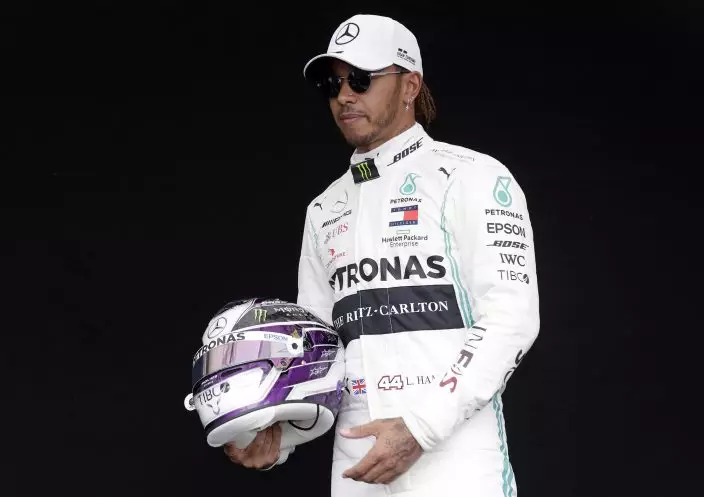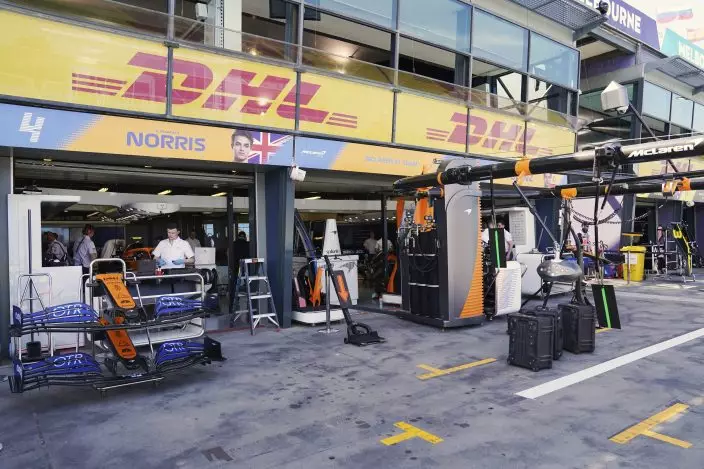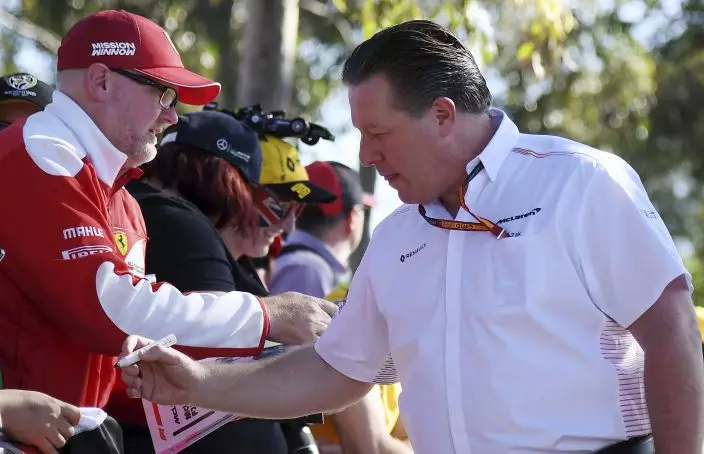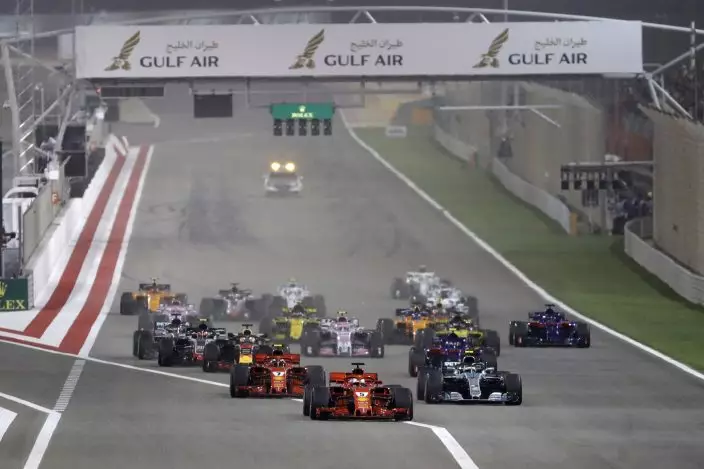Formula One teams will be limited to spending $145 million next season and even less in following years, after motorsport's governing body approved a budget cap on Wednesday.
FIA said in a statement that the cap will be scaled down to $140 million in 2022 and $135 million for 2023-2025, based on a 21-race season. It excludes driver salaries and engine costs.
“Formula 1 wins today. This is a crucially important moment for our sport,” said McLaren team chief executive Zak Brown, who had pushed for a lower cap. “F1 has been financially unsustainable for some time, and inaction would have risked the future of F1 and its participants.”

Mercedes driver Lewis Hamilton of Britain poses for a photo at the Australian Formula One Grand Prix in Melbourne, Thursday, March 12, 2020. (AP PhotoRick Rycroft)
F1′s finances have taken a significant hit with t he first 10 races of the season either canceled or postponed because of the coronavirus pandemic.
Figures released by F1 owner Liberty Media this month showed first-quarter revenue of $39 million compared to $246 million for the same period last year. F1 had debts of $2.9 billion, offset by producing extra liquidity through internal transactions.
The smaller teams especially face an uncertain future, leading to discussions about reducing the budget cap.

Technicians work around equipment and car parts in the The McLaren team pit at the Australian Formula One Grand Prix in Melbourne, Thursday, March 12, 2020. McLaren says it has withdrawn from the season-opening Australian Grand Prix in Melbourne after a team member tested positive for the coronavirus. (Michael DodgeAAP Image via AP)
A cap of $175 million was already agreed last year but several teams wanted it lowered again. Ferrari argued against it, but McLaren wanted it pushed as low as $100 million.
FIA also approved a new sliding scale system for aerodynamic testing, following Wednesday's vote by the World Motor Sport Council.
It means that the lower a team finishes in the constructors’ championship, the more wind tunnel time it gets the following year to develop the team's car. This initiative is designed to reign in the advantage of the bigger teams while helping those with lesser resources compete more evenly.

Zak Brown, CEO of McLaren, signs an autograph as he arrives at the track for the Australian Formula One Grand Prix in Melbourne, Thursday, March 12, 2020. McLaren says it has withdrawn from the season-opening Australian Grand Prix in Melbourne after a team member tested positive for the coronavirus. (AP PhotoAndy Brownbill)
The past 10 championships have been dominant doubles.
Led by six-time F1 champion Lewis Hamilton, the Mercedes team has won the past six drivers' and constructors' championships — an F1 record. Before that, Red Bull won both categories four straight times with Sebastian Vettel driving.
“A uniform budget cap, in concert with more even distribution of revenue among the teams, will ensure greater competition and more people wanting to watch live and on TV," Brown said. "Ultimately the fans win, and if the fans win, the whole sport wins too.”

FILE- In this April 8, 2018 file photo, Ferrari driver Sebastian Vettel of Germany, center, leads at the start and followed by Mercedes driver Valtteri Bottas of Finland, right and Ferrari driver Kimi Raikkonen of Finland, left, during the Bahrain Formula One Grand Prix, at the Formula One Bahrain International Circuit in Sakhir, Bahrain. The Formula One race this month in Bahrain will be run without spectators over fears about the new coronavirus, the island kingdom announced Sunday, March 8, 2020, as Mideast stock markets fell sharply amid plummeting demand for crude oil and OPEC's inability to agree on a production cut. (AP PhotoLuca Bruno, File)
F1 is hoping to start the season with back-to-back races at the Austrian Grand Prix in early July, followed by two at the British GP.
F1 chairman Chase Carey said he hoped 15-18 of the 22 races this season can still be held.
More AP racing: https://www.racing.ap.org and https://twitter.com/AP_Sports


